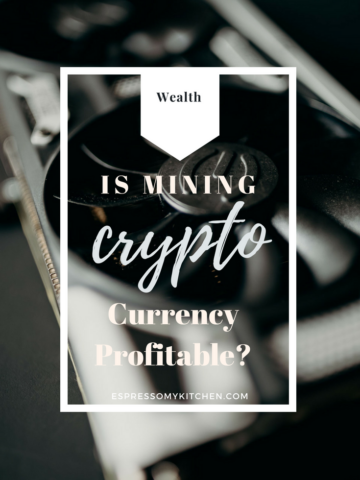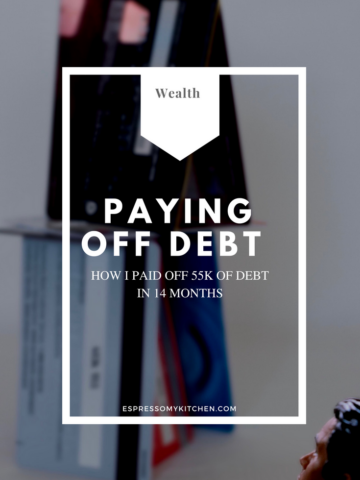We all have to start somewhere

Why I started investing
2008 was a turbulent year for most Americans. The financial crisis was a daily topic for mainstream media. Projects were ending. Work was drying up. Consumers were slowing their spending, and equities were taking a tumble.
The economy was collapsing before our eyes, and the future was looking bleak. Talking heads kept touting recession and depression were upon us; causing me to become fascinated with the economy and financial markets.
I kept hearing how trillions of dollars in market value were being wiped away. How it was all the short sellers and algos fault for the panic selling. Well I thought, If most people are losing money, but others are making it, I need to learn both what, and what not to do. They always say, “if you can’t beat em, join em.”
Life before investing
At this moment in my life, I was a metal fabricator and race car prepper. I would tear down a race car after a race; weld and repair the chassis, and put it back together. It was thrilling to be around race cars for someone who loved speed and adrenaline.

I was educated only by the school of hard knocks and what I had learned on the job. I passed up college, at that time, to pursue my passion for racing, and in order to earn money immediately. I still battle with the need for instant gratification, but I’ve gotten better with age.
Go to school!
Don't do this. Go to college! If anything, have it be your plan B, but get a 4 year degree. I later got a degree in finance after gaining an interest in the markets.
Working on quarter to half a million dollar race cars, and infrequently being a passenger in them, was the only way I new to be a part of racing at that time. But I did notice a pattern. The owners of these race cars were obviously very wealthy, but they all had similar professions. They were business owners and investors. Many owned construction companies, investment properties, and other businesses that sold products in the industry.

I made the decision that I didn’t want to just work on race cars anymore. No, I wanted to be the owner of the race car, and I was determined to find a way.
I opened a brokerage account
I did things a little backwards, but it was all around the same time. If you recall one of my recent posts, How I paid off 55k of debt in 14 months I talked about getting out of debt. Well, this was a little prior to that.
I wanted to open a trading account and begin investing. Really, I should have opened a paper trading account (demo account) first, in order to learn. That would have been good information if I knew about it at the time. Investopedia has one I’ve used in the past; after learning instead, by paying the markets to teach me. Many brokers offer demo accounts as well. Investopedia doesn’t require all the sign up information like a brokerage account would, so that’s probably where I’d start today.
I ended up opening an account at E-trade. Judging by the hilarious baby commercials at the time, I determined they were clearly the appropriate broker I should start with. It was an extreme vetting process to say the least.
Time to fund the account
I had a negative net worth back then, so I did what any rational person would in that situation. I borrowed 5k using a promotional check one of my many credit cards was offering.
Read a less risky strategy I adopted, and currently use, here: Earning the Float.
I did this in order to fund the account. DON’T DO THIS! Looking back, it was really silly of me to invest while having so much debt; in addition to, taking on more debt to fund the account. Again…
DON’T DO THIS!
During the account opening process they asked if I would like a margin account. It required I maintain a $2,000 balance, but I could borrow from the broker to buy more stock. Ummm why wouldn’t I do this…? Little did I know I wasn’t borrowing for free, and leverage is a double edged sword, but I’ll talk about that in another post.
I needed a hot tip
My margin account is up and running. My 5k of borrowed money is waiting to be leveraged again, and I’m as excited as can be. I’ve read a few books at this time; watched plenty of CNBC, and I knew that if I just listened to a stock trading guru, I couldn’t go wrong. I needed my first trade idea.
Did I do any fundamental analysis or forecasting? No! Technical analysis? No! Macro analysis? No! You see, I had it figured out already. I just needed a tip on what to buy and I could just let the guru’s tell me that. But not any guru. I had to wait until 5pm so that Jim Cramer could tell me what to buy on his show Mad Money.
I can hardly type this without facepalming myself over and over.

Time to trade
Cramer told me that BAC was a solid buy. I knew what I needed to do. I needed to take action! The following day I purchased 10k worth of BAC stock using my 5k of funds and 5k the generous broker lent me.
Well at the close of the following day, or the next, I noticed a transaction cost, but I hadn’t made any trades. This was a fee I was being charged to borrow these funds. I decided I needed to take a step back and learn a bit more before getting into the markets. I wanted to read up on these fees and see just how I really wanted to invest.

Something didn't feel right. Time to sell.
I decided to sell my 10k of $BAC stock the following day. My gut was telling me I was way in over my head. I set a sell limit order near the close of the previous day and hoped the market would open near where it had closed.
After doing a little research, I was fairly easily able to determine that date. (I no longer have that specific account to be able to confirm.)
I got extremely lucky
The following day, September 19, 2008, the SEC, one of the bodies that regulates the securities markets, announced it was banning short selling of financial stocks. Meaning traders were no longer able to sell shares they didn’t own in hopes of the stock’s prices going down. This caused $BAC to gap higher at the open; near 30% higher than I had bought. My order was filled at the higher opening price instead of the limit price I had set the previous evening.
(Limit prices specify the lowest price you’re willing to sell, but allow you to be filled at a better level.)
In a matter of a week I had made around $2800. I was hooked. Dumb luck or not, I was hooked for life. I had never made so much money so fast before. I still remember going into work that day and telling my team how much I had made before work.
(Equity markets open 6:30 am Pacific time.)
I was full of excitement for what the future had to offer me. I remember my colleagues asking, “Are you going to take the money and run?” “Nope, I’m reinvesting!” I replied. That put me on the journey to where I am today.
Conclusion
I got extremely lucky with this trade; even back then, I realized that. My life may have gone in a completely different direction had the stock dropped. Sometimes things just work out in odd ways. I was super naive and uneducated back then, and I still realize I have a lifetime of knowledge waiting to be consumed.
I hope you take away a few things from this story.
- There is no such thing as a guru. No one knows what’s going to happen to the price of anything tomorrow unless they have inside information, in which case, don’t go anywhere near those people that are willing to share that info.
- You don’t know what you don’t know, but do more research to see if you can test an idea before putting real money at risk.
- There is so many moving parts to the markets. If you are going to do anything besides invest in low cost ETFs or Index funds, you better do a ton of research.
- Don’t start off with a margin account. You can always add this later if you choose.
- You need to come up with your own investing/trading strategy that works for you. What works for others may not work for you. We all have different goals and risk tolerances. The most boring easy strategy of investing in ETFs and Index funds is likely the way to go.
This is not financial advice in any capacity, as no one contributing to this blog at EMK is a licensed financial advisor, attorney, or certified public accountant, and no portion of the blog content should be construed as financial, legal, or accounting advice. Please consult a licensed professional before making a financial decision.
What was your first trade like? Was it a winner or a loser? What did you buy? Let us know in the comments below.





Leave a Reply